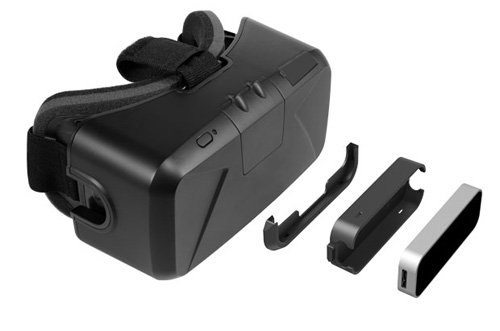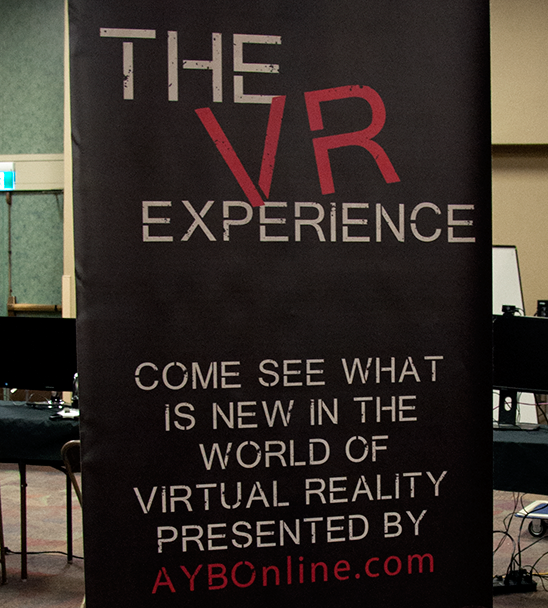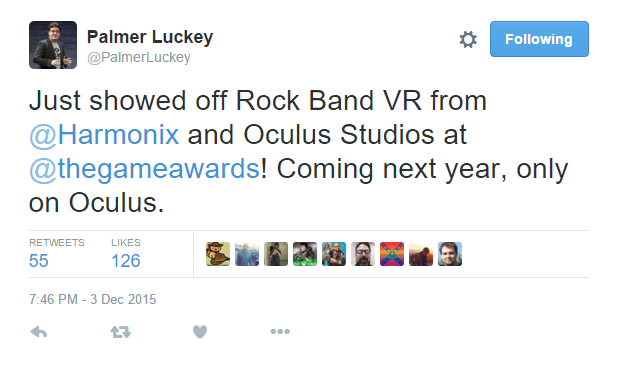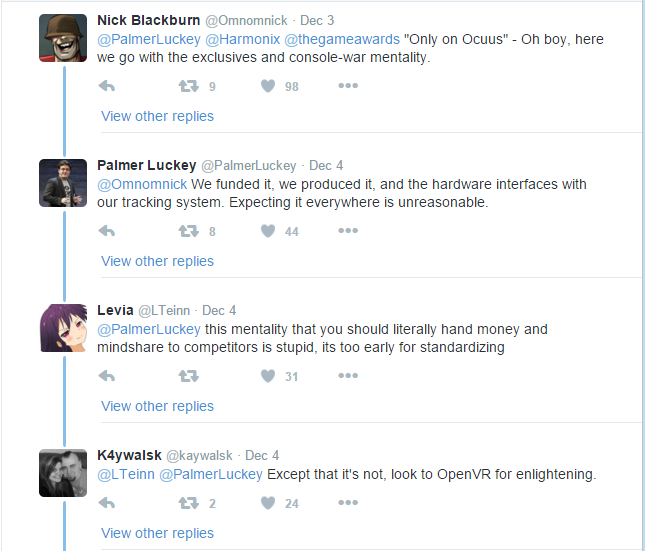I remember the first time I ever tried VR. It wasn’t two years ago with the first Oculus Rift developer kit. It was far, far earlier than that. I had the opportunity to try a very primitive version of premium VR something like 20 years ago.
I was on a family trip to Florida and while we were there we made a stop at the famous Epcot Center. In there I know we saw some neat stuff but only two things stick out in my memory enough to recall them with even remote detail. I know there was an incredible light/fireworks show late that evening, and I know there was a virtual reality setup, fully equipped with head mounted display, light gun and a standing harness similar to the omnidirectional treadmills being built today. Of course this didn’t have foot tracking, it was just meant to hold you up, all of your walking motion was done with buttons on the controller. I remember this clearly, despite it taking place when I was 11 — so when I first saw the Oculus Rift Kickstarter campaign I was instantly a believer.

I held back from buying into the dev kit, simply because I have no programming background so it really wasn’t meant for me, but I waited with baited breath to see how it panned out. When I found out we had access to one at BaseLAN I rushed to try it and I was so blown away it’s not even funny. I had high hopes and this blew my mind.
Virtual reality hardware and software have made tremendous leaps towards being a viable consumer medium over the last two plus years and we’re almost there, but it’s very easy to screw this whole thing up and I’m starting to think the people driving the industry are making key mistakes that could doom the whole VR market from realizing its true potential.
Right now, we’re on the very cusp of a critical point in our technological history. The possibilities of VR, AR and other immersive technologies are endless but they will rely on consumers to pick them up. As things stand, we have a brand-new piece of technology coming out that will carry with it a fairly large barrier of entry, in that it will be rather expensive to buy into. People are already jaded by the cost; the last thing that VR needs is a bunch of potential customers who are put off by the way the companies behind the hardware are behaving.
Look at Xbox and PlayStation in the console market for an example. Each one has their benefits and disadvantages, but in many ways exclusive content checks off both those boxes. People love games, and they will buy into the platform that has the games that they want. This works for consoles because they have a closed platform to work with. Everyone has the same hardware, so it’s just easier to develop for the best possible performance and visuals. When you work with multiple platforms, there’s always going to be some sacrifices. But at the same time, you fracture the fan base by making exclusive content. You either lose out on that sale, and potentially the adoration of another consumer, or you force them into buying a whole new platform, which can leave a sour taste in their mouths.
VR, in some regards, is a new platform. It’s somewhat like a new console launch, in a way, but it shouldn’t mimic the console industry by making exclusive content. When you think about it, a VR headset in its most basic form is simply a new format of display. This has never affected PC gaming with exclusives before. Sure there have been advancements like 3D displays that certain games took advantage of, but that didn’t exclude you from using a different display that didn’t support 3D to play the game.
VR is already going to be a fairly niche market. It’s going to take some time to get the headsets into people’s homes. In the coming year, unless you are an early adopter type, you likely won’t have a VR headset and probably not even know anyone with one. It’s going to be a small market already, so the last thing this market needs is a fractured presence within it. VR hardware is going to cost hundreds of dollars. Expecting anyone to buy more than one model is ludicrous to the say the least, so it’s not in developers’ best interest to make exclusive deals for certain hardware.
VR should be an open medium that lets developers learn from each other. Valve has taken that approach with its SteamVR platform, and Razer has gone so far as to create a coalition of companies involved in VR called OpenVR. Oculus, on the other hand, has finally shown its true colours, and it makes me fear for the industry as a whole.
A little over a week ago at The Game Awards, Palmer Luckey, founder of Oculus, came on stage to make an exciting announcement. Oculus partnered with Harmonix to bring the beloved Rock Band franchise to VR. At first I was completely blown away by the implications of this idea. I can’t wait to rock out in virtual reality and see the crowd in front of me and my bandmates next to me. It sounds absolutely wonderful. But then after I had some time to let the hype settle, I realized this is terrible news.
Oculus has started VR off on the wrong foot in a big way and I’m worries it’s going completely torpedo a lot of potential sales. Directly after coming off stage, Luckey sent out a Tweet about the news that reinforced that the game was coming to Oculus only.
It didn’t take long for people on the Twitterverse to call Oculus out on this practice and this is the source of my concern. In one announcement that should have done everything to fuel the hype of virtual reality, the company chose greed and control and essentially pissed off a whole bunch of excited customers. These are people that are in-the-know and ready to jump in. The early adopters are going to be the critical group that gets VR moving in the market. I cannot comprehend how a company in this position can fail to see that.
Luckey retorted with a borderline snide remark stating that Oculus paid to make the game, so it will only work with their hardware. This is a shocking mentality when the reality is Palmer Luckey himself was able to create the Rift in the first place by being part of the collaborative group on the Meant To Be Seen (MTBS.org) forums, where he met people who passed on much of the knowledge that made the whole headset possible. If it weren’t for the open work in that group, VR as we know it today probably wouldn’t exist in its current form.
With such a small group of potential early customers, you’d think Oculus would be ready to do the best thing for the consumer. Being able to use any VR HMD to play any VR game is the way it should be on PC. Playstation VR gets a pass for obvious reasons, but I should be able to pick up a Rift or a Vive or even a Fove headset and play anything that support VR. This is the approach that Valve has taken.
Valve has taken the stance that it is making SteamVR to work with any VR HMD on the market. SteamVR is already able to interface with the Oculus Rift and of course the HTC Vive which it is working on building. Valve’s own Chet Faliszek recently did a talk about Developing Virtual Reality and in it he highlighted the need for this industry to be open. For developers to share what they know and learn from each other.
That’s not to say that Oculus is the only company making missteps with consumers’ faith. HTC just this week let the cat out of the bag that it won’t be living up to its promise of a 2015 release. When HTC first announced the Vive was coming, it made bold claims that we would be seeing a consumer release near the tail end of this year, and the company has held strong on that official narrative. It waited until the very last minute — literally waiting until the event that everyone, even presumably developers, thought would be the pre-order announcement — to say otherwise. HTC’s J.B. McRee, the man in charge of the global marketing team behind VR, was even reiterating that Vive would launch this year as late as November.
In reality, we’re still quite a while away from the release. HTC said the Vive will begin shipping in April of next year, which even misses the Q1 promise of the Rift, killing its chances for a first-to-market head start. The following day, the company updated its blog post, stating that pre-orders will begin in February — but this was done with zero fanfare, so it’s still possible that date will slip too, and therein lies the biggest problem. Not being transparent at this critical junction does nothing good for consumer trust, which is something that HTC is struggling to maintain in its other businesses too.
Virtual reality really, truly does have the potential to change the world, but it’s going to take people that want to buy into the medium to make it thrive. Making critical mistakes like this before the industry even gets onto its feet is a recipe for disaster and it makes me sad to see things playing out like this.
Time will tell how the consumer market reacts to virtual reality hardware, but it’s not going to have a good start if its biggest supporters, the so-called VR evangelists, become jaded before it gets here.
Kevin Carbotte is Senior Editor, Hardware for aybonline.com. He knows a little about a lot, and a lot about a little. The opinions in his columns are his and his alone, but you are free to have them.




